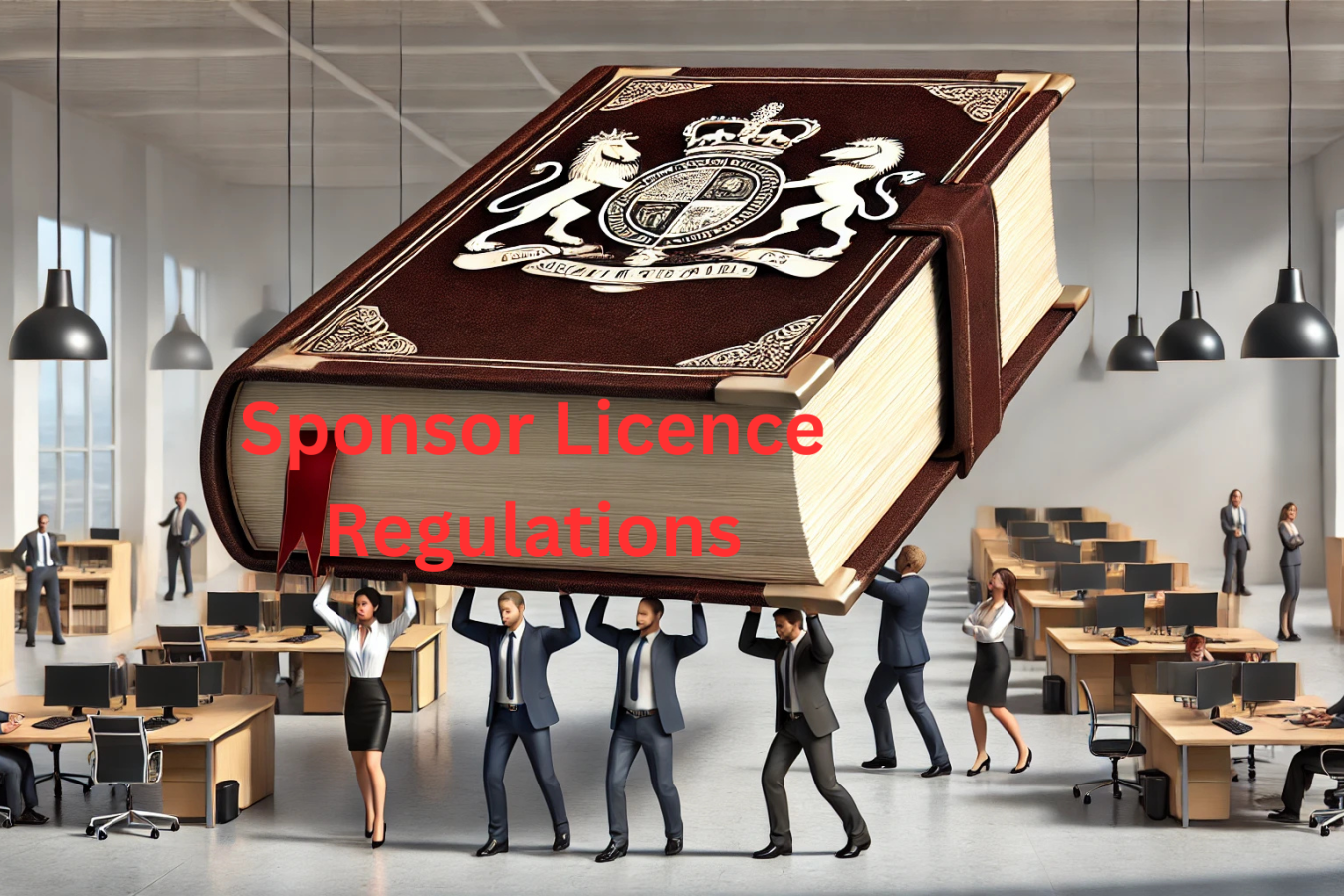Support migrant centric journalism today and donate

By Sanwar Ali:
Sanwar Ali, founder of Workpermit.com, has always been at the forefront of using innovative technology to simplify complex immigration processes. He has designed, the AI-powered Sponsor Licence Application Tool, which revolutionises the way UK businesses apply for sponsor licences, essential for hiring skilled workers from overseas. This tool is powered by ChatGPT technology and is designed to provide detailed advice and assistance for making sponsor licence applications. Please note that AI systems can make mistakes and "hallucinate".
Introduction
In 2024, the UK Home Office has significantly updated its sponsor licence system, imposing more rigorous compliance requirements for businesses using the Skilled Worker visa route to hire international talent. These updates are aimed at improving transparency and ensuring only compliant sponsors remain active. For UK employers, this guide provides a comprehensive overview of the changes, focusing on managing Certificates of Sponsorship (CoS), adhering to Home Office immigration rules, and effectively navigating the complexities of ongoing compliance.
Extended Sponsor Licence Validity and Ongoing Compliance Obligations
As of April 2024, sponsor licences now last for 10 years, eliminating the need for frequent renewal applications. This shift relieves sponsors of renewal-related administrative burdens and fees, allowing UK businesses to allocate resources toward core operations. However, longer licence validity does not mean less scrutiny: the Home Office emphasizes continuous adherence to compliance standards, and serious violations can result in licence suspension or revocation at any point within the licence period.
Employers must conduct regular compliance checks and internal audits to align with UK Visas and Immigration (UKVI) standards. Maintaining updated compliance is crucial not only for retaining the ability to sponsor international hires but also for protecting an organization’s reputation. Companies are strongly advised to train HR teams in handling sponsorship duties, keeping documentation accurate, and meeting compliance standards across all stages of employment
.
Increased Home Office Audits and Inspections
Home Office audits have become more frequent and stringent, with both scheduled and surprise inspections. These audits assess compliance with right-to-work checks, accurate record-keeping, and timely reporting. High-risk sectors such as healthcare, construction, and technology are subject to intensified scrutiny, leading to increased licence suspensions in 2024. During an audit, the Home Office verifies sponsor records, Certificate of Sponsorship (CoS) allocations, and compliance with Skilled Worker visa requirements, making detailed and accurate records essential.
Audit Preparation and Best Practices
Employers can prepare for audits by implementing the following strategies:
- Conducting Regular Internal Audits: Frequent reviews allow sponsors to identify and address compliance gaps before an official audit.
- Documentation Readiness: Sponsors must maintain accessible records that include worker job descriptions, locations, and employment changes, as these are commonly checked during audits.
- HR and Compliance Training: Equip HR staff with up-to-date knowledge of Skilled Worker visa sponsorship rules, right-to-work checks, and documentation requirements. This proactive approach reduces risks associated with Home Office inspections.
Updated Reporting Requirements for Hybrid and Remote Work
With the shift toward flexible work models, including hybrid and remote arrangements, the Home Office has introduced new compliance requirements for sponsored workers. Employers must report any change in a worker’s primary work location within 10 working days, whether the location change is permanent, hybrid, or temporary. This adjustment aligns with the new trend toward flexible work arrangements but demands sponsors maintain up-to-date records in the Sponsor Management System (SMS) to avoid penalties.
To meet these reporting requirements, sponsors are advised to:
- Implement Location-Tracking Systems: This helps ensure that all work arrangements, including changes to remote work setups, are accurately documented.
- Automate Reporting Reminders: These can reduce the risk of delayed or missed reporting for location changes, especially for businesses managing large teams of sponsored workers.
Stricter Record-Keeping Standards for Certificates of Sponsorship (CoS)
The Home Office has heightened its focus on record-keeping for sponsor licences, making it essential for employers to document every detail related to Certificates of Sponsorship (CoS). These details include right-to-work documentation, role descriptions, salary information, and weekly hours. For each CoS, employers must confirm that the role meets the Skilled Worker visa requirements for skill level and minimum salary thresholds.
Key documentation requirements include:
- Right-to-Work Checks: These must be accurate and up-to-date, covering the entire duration of the sponsored worker’s employment.
- Role and Salary Records: Employers must update and verify these records whenever there is a change, ensuring compliance with Home Office regulations.
- Weekly Work Hours: Sponsors must include a summary of weekly hours for roles requiring defined CoS. This confirms the position meets minimum salary and skill requirements for the visa.
Failure to maintain accurate records can result in fines, suspension, or revocation of the sponsor licence, making meticulous documentation essential.
Financial Penalties and Compliance Action Plans
The Home Office has introduced harsher penalties for non-compliance, with fines up to £60,000 for major breaches. Financial consequences vary based on the severity of the infraction, and repeated violations can result in licence suspension or revocation. Non-compliant sponsors may be required to submit a compliance action plan, which details corrective measures to address compliance gaps. Failure to follow this action plan can lead to licence downgrade or revocation, impacting an organization’s ability to employ skilled migrant workers.
To avoid such penalties, sponsors are encouraged to implement a system of checks and balances, ensuring that all compliance requirements are met before an official audit or inspection. Businesses are further advised to develop a compliance management system to monitor visa renewals, CoS updates, and record-keeping.
Sector-Specific Compliance Standards
Some sectors have unique requirements that must be met for sponsor licence compliance. For example:
- Healthcare and Social Care: Healthcare employers must verify that sponsored workers are registered with relevant professional bodies and meet UK-specific qualifications.
- Seasonal and Offshore Workers: Sponsors of offshore workers must report worker arrival and departure within 10 days, meeting the standards specific to offshore employment. Seasonal worker roles require sponsors to adhere closely to additional reporting rules.
- Scale-Up Worker Route: Sponsors using the Scale-Up visa route must confirm exact start dates and roles, ensuring alignment with compliance standards.
These sector-specific rules emphasize the Home Office’s focus on industries that frequently rely on skilled foreign talent, requiring businesses to understand and implement the appropriate guidelines based on their industry.
Recommendations for Effective Compliance Management
To maintain compliance, sponsors are advised to:
- Schedule Monthly Compliance Audits: Regular audits help employers identify potential gaps early, allowing them to make timely adjustments before an inspection.
- Invest in Digital Compliance Solutions: Digital tools and software for tracking visa renewals, CoS allocations, and document storage can improve accuracy and streamline reporting.
- Stay Updated with Changing Immigration Laws: Regular training for HR teams ensures that they are familiar with the latest compliance requirements, reducing the risk of non-compliance due to outdated practices.
Future Outlook: Compliance and Digital Transformation
As the UK faces a persistent shortage of skilled workers, particularly in technology, healthcare, and construction, sponsor licence compliance will remain a priority. The Home Office may continue to enhance digital solutions for compliance monitoring, potentially requiring sponsors to adopt advanced technology to track, update, and manage sponsored workers’ records. Political and economic shifts could further influence immigration rules, underscoring the importance of staying informed and agile in compliance strategies.
Implementing a comprehensive compliance management system and investing in digital tools will position sponsors well for these anticipated changes, ensuring that they can continue to access skilled foreign talent without risking licence status.
Conclusion
Maintaining a UK sponsor licence in 2024 requires adherence to increasingly strict compliance standards. The extended validity of sponsor licences offers administrative relief, but it requires sponsors to maintain rigorous standards across all compliance areas. Sponsors are encouraged to conduct regular audits, document all job and worker details accurately, and update all relevant information in the Sponsor Management System (SMS) to avoid penalties and protect their licence status. By adopting a proactive approach, businesses can ensure continued access to the international talent they need to thrive in a competitive market.
How Workpermit.com Can Help with sponsor Licences
If you need help with employing Skilled Workers and applying for a Sponsor Licence, including complying with your Sponsor Licence obligations, HR responsibilities, etc workpermit.com can help.
For more information and advice, please contact us at 0344 991 9222 or at london@workpermit.com(link sends e-mail)





















